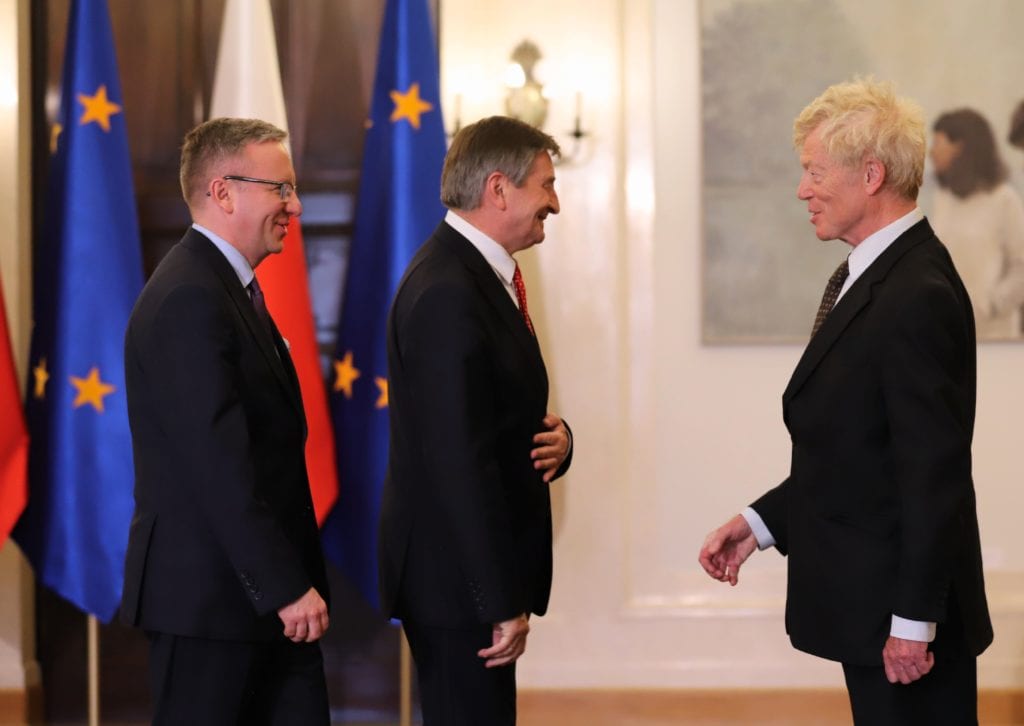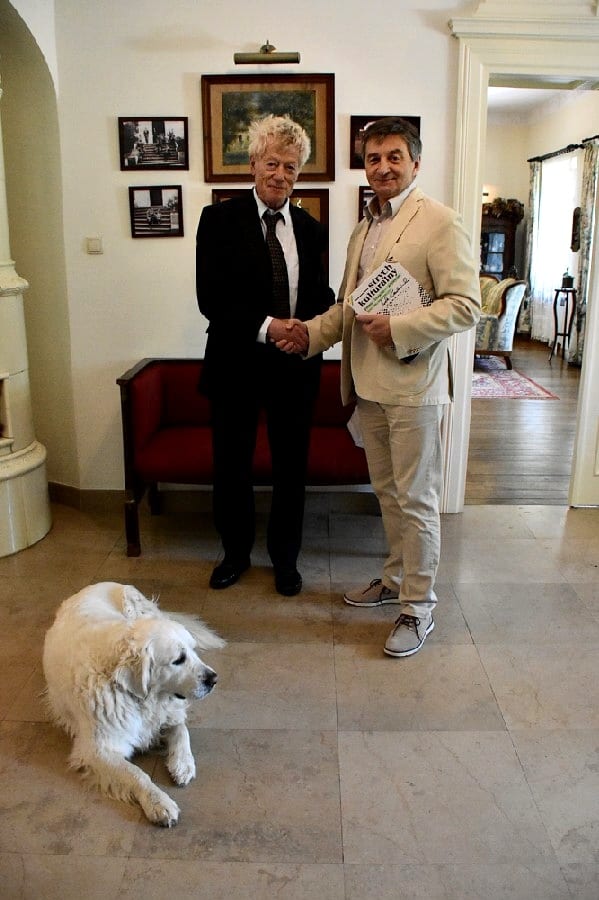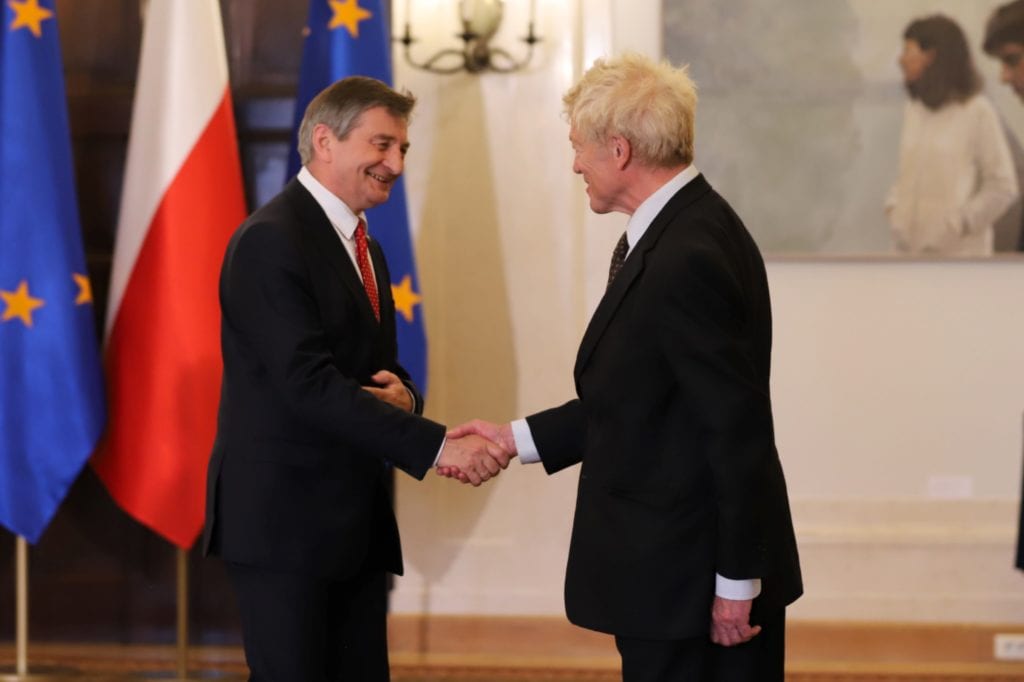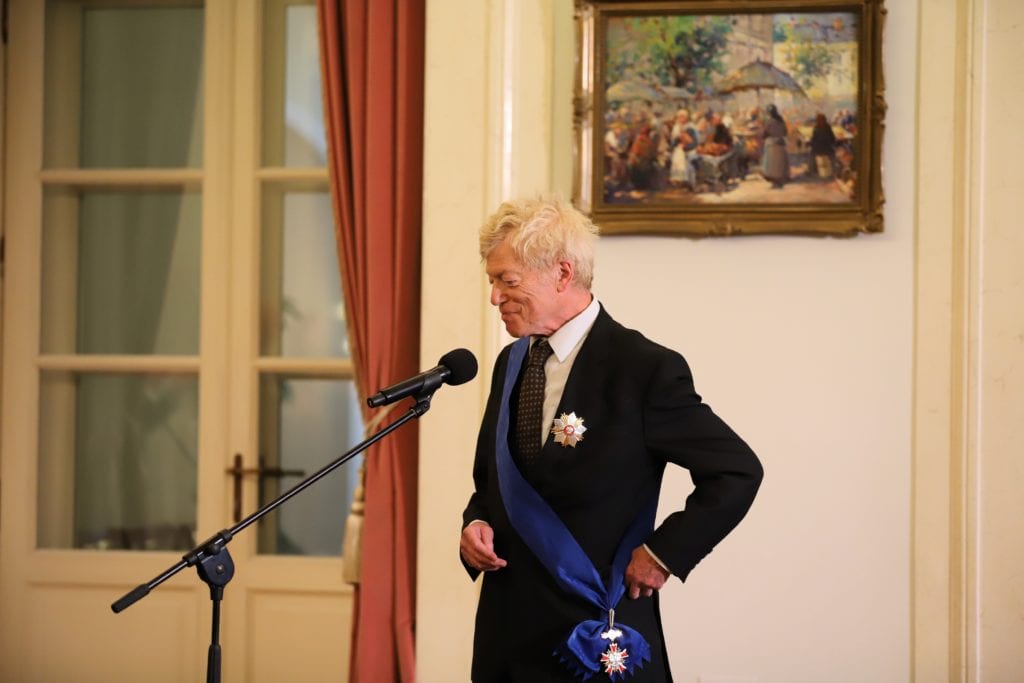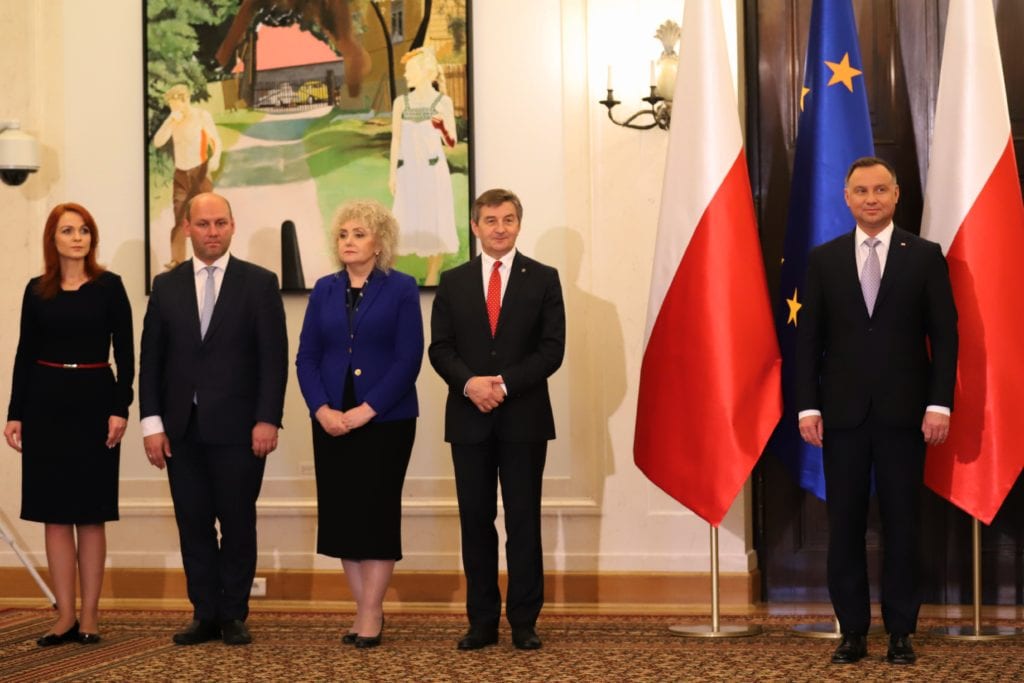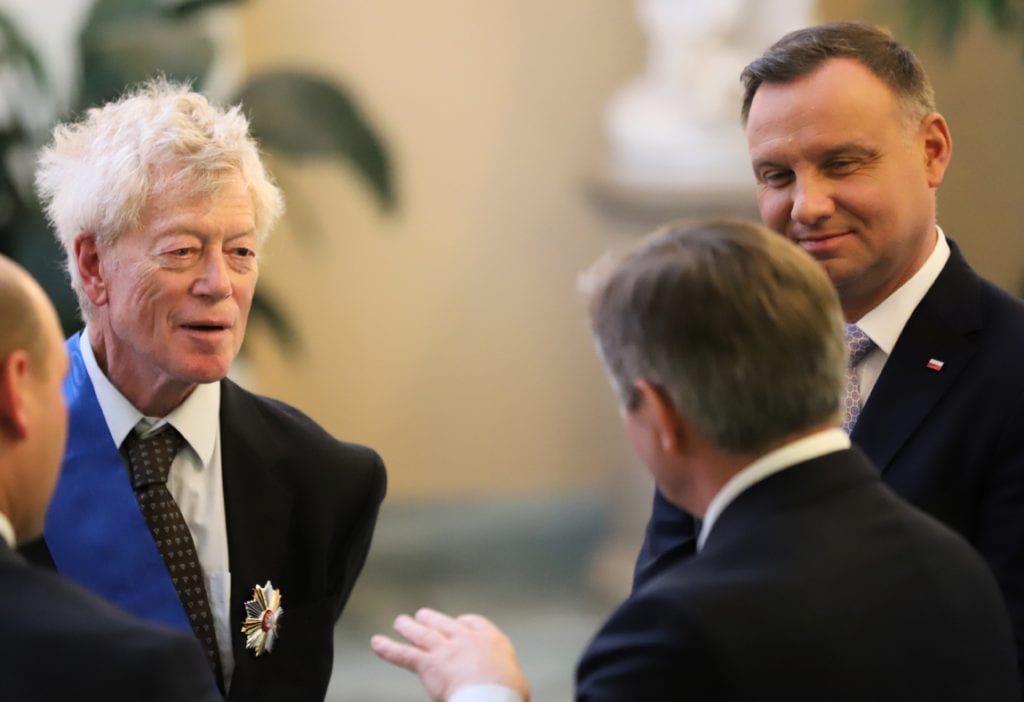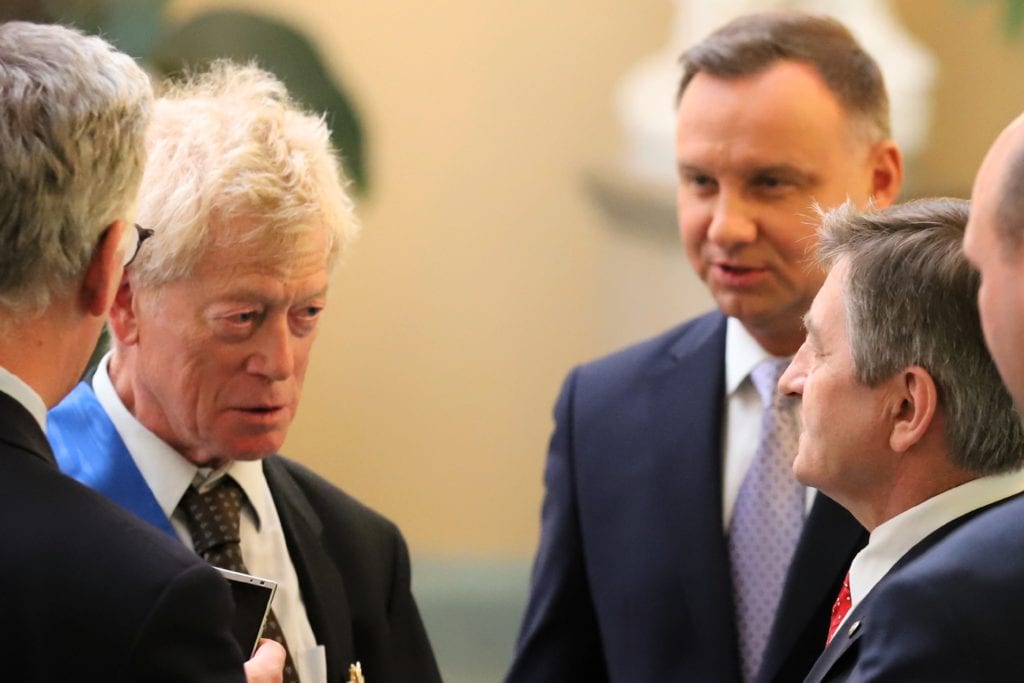The President of the Republic of Poland awarded the Grand Cross of the Order of Merit of the Republic of Poland to Roger Scruton, a citizen of the United Kingdom of Great Britain and Northern Ireland, in recognition of his outstanding contribution to supporting democratic change in Poland and for developing Polish-British scientific and academic cooperation.
- Communism ended thanks to the faith and patriotism of the Polish people. I am honored to have played a modest role in that," said Professor Roger Scruton. - It is important to defend ideas in opposition to ideologies... Let us remember that communism was imposed on the nation by the Soviets to whom Poles were subordinate... We succeeded thanks to traditions and identity, Catholic faith, sense of history and courage. The Poles set a very good example. And just as we in the West once tried to help Poland, we now need your help," Scruton argued.
In the 1980s, Scruton supported the anti-communist opposition. Among others, he collaborated with the current Speaker of the Sejm, Marek Kuchcinski. In the introduction to a reprint of a magazine published by Kuchcinski, he wrote:
I traveled in search of small groups of people who wanted to discuss, learn, ask questions, and recapture at least some of the intellectual life that once flourished in Poland. I was always followed, and I could generally recognize the scoundrels who had a contract on me by their large cauliflower ears and noses dripping into their damp mustaches. They were the kind of people only the security police could hire. Everywhere I went it was clear how effectively the Communist Party had once again wiped out Poland's civil society, leaving the remnants to the Church. There was a grim realization in people that there was no point in arguing because nothing would ever change as a result of the dispute. It was best to take care of one's family and stay close to the Church.
In the 1980s, the Solidarity period was already a memory, and martial law had reduced Poland to a kind of somnambulistic silence. I traveled in search of small groups of people who wanted to discuss, learn, ask questions, and recapture at least some of the intellectual life that intellectual life that once flourished in Poland. I was always followed and generally I could recognize the scoundrels who had an assignment on me by their large cauliflower ears and noses dripping into their moist mustaches. They were men that only the security police could employ. Everywhere I did not go it was clear how effectively the Communist Party had once again wiped out Poland's civil society, leaving the remnants to the Church. There was a grim realization in people that there was no point in arguing because nothing would ever change as a result of the dispute. It was best to take care of your family and stay close to the Church.
And then I stumbled upon Przemyśl. Thanks to Mark Matraszek's careful work, we learned about the society of citizens in this old and once prosperous Galician city, who published an underground magazine, The Cultural Atticand who met, not like our friends from Czech Republic, in some cellar or boiler room underground, but on top of buildings, as if they didn't care who could see them. Their discussion group was described as attic, a place under a roof, and when I met them I found myself in an open society of normal, petty bourgeois people who were determined to live, paint, write and discuss, as if the Party was nothing more than a stream of of dirty water flowing in the sewage below.
At They were headed by Marek Kuchcinski, a former student of art history who lived outside system and was an ardent believer in culture as a liberation of the spirit and opposing the totalitarian order. The following people gathered around him writers, painters, teachers, and it was thanks to him that I was able to organize a series of visits by Western intellectuals to discuss in these attics the most important issues of the day.
Things began to change quickly, but the image of Przemyśl as a a haven for civil society in a bleak socialist state. It was a place determined to preserve its identity as a city, culture, and lifestyle. lifestyle. When the communists finally capitulated I read with joy that Marek Kuchciński had been elected as a councilor, and later as an MP, of the city he had I look back fondly on those times. I look back with pleasure on those times when art and culture were symbols of the freedom of the human spirit and I recall how important I remember how important it was that small underground magazines, such as The Cultural AtticThey kept the memory of of freedom and were the seedbeds of a civil society that was soon to to sprout again.
text/ Photo by M. Olejnik
